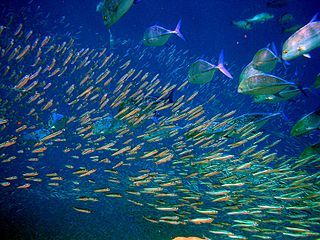Expansion of “Oxygen Minimum Zones” May Reduce Available Habitat for Tropical Pelagic Fishes
One of the many consequences of climate change and the run-off of our increasingly powerful chemical fertilizers is the killing of our oceans. In this article, a team of researchers reveals how more ocean habitat is lost each year, as the amount of dissolved oxygen is reduced below levels that support life for pelagic fishes, i.e., those that do not live on or near the shores, reefs, or sea bottoms.
The solution? There are many, of course. One that we explored in a webinar last April is aeroponics, growing plants in a recirculating mixture of water, air, and minerals.


Oceanic dead zones began close to shore in places where urban and agricultural drainage was designed to empty into the seas. Mostly the result of concentrated nitrogen and other nutrients, aquatic flora developed new, more powerful strains that now compete underwater for oxygen, to the extent of consuming all that’s available and creating what are referred to as aquatic hypoxic zones. Hypoxia, a deficiency in the amount of oxygen reaching the tissues, kills any sea life that finds itself trapped there. There are other causes as well, having to do with climate change, that acidify the oceans, but agriculture is the biggest polluter of them all. Aeroponics is one way to correct the problem with agriculture. All recirculation water methods of growing food are effective as, typically, they conserve water by not discharging into the watershed by soaking the earth or through runoff that occurs during flooding.
Great to see this news on your site, Craig!
Thanks, Rafael. I completely support what you’re doing. It’s funny; I didn’t always. When I was first approached with this concept a few years ago, I thought it was asinine. Then I started to think it through: local growing, very little water, easy-to-grow organics, no chemical fertilizers and herbicides ruining the soil and waterways. It’s really terrific. Keep up the good work.